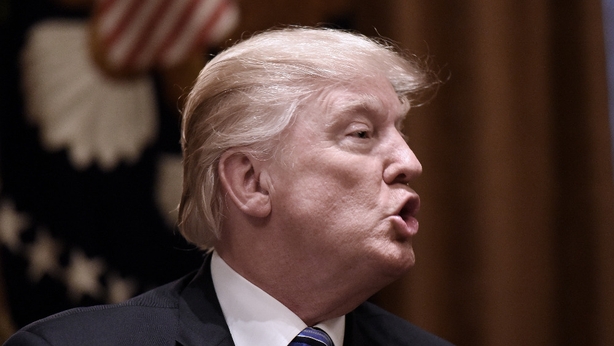The United States and China have failed to agree on major new steps to reduce the US trade deficit with China, casting doubt over President Donald Trump's economic and security relations with Beijing.
The annual economic dialogue session in Washington ended with cancelled news conferences, no joint statement and no new announcements on US market access to China.
The two sides had a "frank exchange" but failed to agree on most major bilateral trade and economic issues that were important to the United States, a senior US official said on condition of anonymity because he was not authorized to speak publicly.
These included US demands for access to China's financial services markets, reducing excess Chinese steel capacity, reductions in auto tariffs, cutting subsidies for state-owned enterprises, ending Chinese requirements for data localisation and lifting ownership caps for foreign firms in China, the official said.
"China acknowledged our shared objective to reduce the trade deficit which both sides will work cooperatively to achieve, "US Treasury Secretary Steven Mnuchin and US Commerce Secretary Wilbur Ross said in a brief statement, highlighting a rare point of consensus.
The Chinese embassy in Washington cast the talks in a positive light, saying in a statement that both sides had acknowledged "significant progress" on the 100-day talks and would to work together to reduce the trade deficit.
"The two sides will expand areas of cooperation in services and increase trade in services; expand mutual investment, and create a more open, equitable, transparent and convenient investment environment," the embassy said.
The session had been billed as a follow-up to Mr Trump's first meeting with Chinese President Xi Jinping at his Mar-A-Lago, Florida, estate in April when Mr Trump hailed Xi's cooperation in curbing the threat from North Korea.

Mr Trump said that this would lead to better trade terms for China.
The two leaders launched a 100-day economic plan that has produced some industry-specific announcements, including the resumption of American beef sales in China and pledged to grant limited US access to some financial services sectors.
But there have been no new initiatives since, and Mr Trump has grown increasingly frustrated with China's lack of pressure on North Korea.
His administration has threatened new sanctions on small Chinese banks and other firms doing business with Pyongyang.

